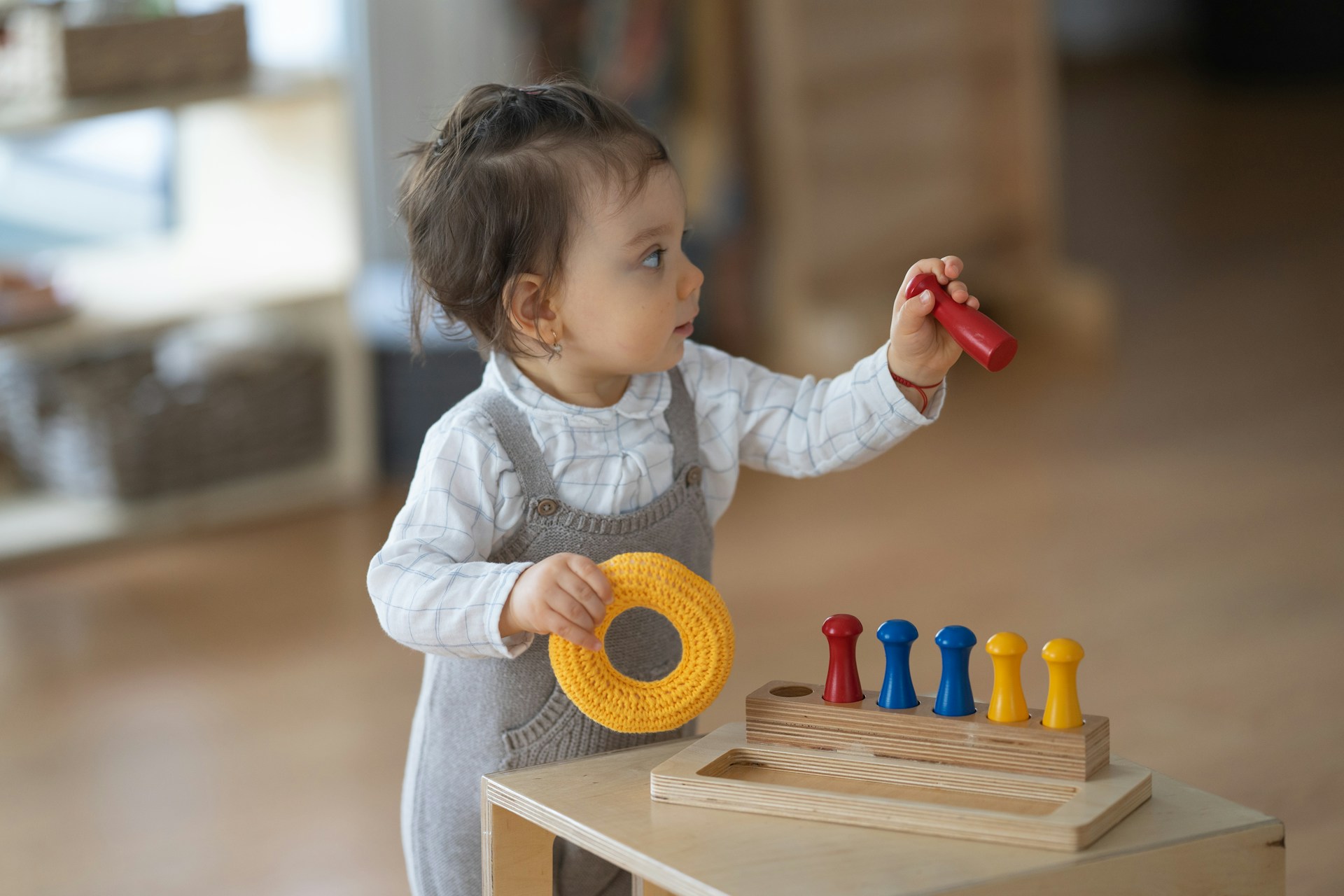When it comes to nurturing early childhood development, choosing the right toys is crucial. For parents seeking educational and engaging play options, Montessori toys for 3 year olds offer an excellent solution. These toys are designed to promote independence, problem-solving, and cognitive skills in young children. In this post, we’ll explore why Montessori toys are ideal for preschoolers and how they can support your child’s growth and learning.

Understanding Montessori Toys
Montessori toys are rooted in the educational philosophy developed by Dr. Maria Montessori, which emphasizes hands-on, child-centered learning. These toys are carefully crafted to encourage exploration, creativity, and learning through play. For 3-year-olds, Montessori toys focus on developing fine motor skills, language abilities, and cognitive functions in a fun and interactive way.
Benefits of Montessori Toys for 3-Year-Olds
- Fostering Independence
Montessori toys are designed to be self-correcting, meaning children can explore and learn without constant adult intervention. This fosters a sense of independence and self-confidence as children learn to solve problems on their own. - Encouraging Fine Motor Skills
Many Montessori toys involve activities that strengthen fine motor skills. For example, puzzles, sorting games, and building blocks help improve hand-eye coordination and dexterity, which are essential for writing and other future tasks. - Enhancing Cognitive Development
Montessori toys often incorporate elements of problem-solving and critical thinking. Toys like shape sorters and matching games stimulate cognitive development by challenging children to recognize patterns, categorize objects, and understand spatial relationships. - Supporting Language Development
Toys that involve storytelling, role-playing, and interactive communication support language development. Montessori toys encourage children to express themselves, expand their vocabulary, and engage in imaginative play, which is crucial for language acquisition. - Promoting Social Skills
Montessori toys that are designed for cooperative play help children develop social skills. By sharing toys and working together on activities, children learn about collaboration, empathy, and communication.
Top Montessori Toys for 3-Year-Olds
- Montessori Sensory Bins
Sensory bins filled with various materials like rice, beans, or water beads provide a tactile experience that engages children’s senses. These bins can include tools for scooping, pouring, and sorting, enhancing fine motor skills and sensory exploration. - Shape Sorters and Puzzles
Shape sorters and puzzles are classic Montessori toys that help children develop problem-solving skills and spatial awareness. They encourage children to think critically and experiment with different solutions. - Building Blocks
Building blocks are a versatile toy that promotes creativity and construction skills. Montessori building blocks come in various shapes and sizes, allowing children to create their own structures and explore geometry. - Montessori Wooden Stacking Toys
Stacking toys made from natural materials like wood help children understand concepts like size, order, and balance. They also improve hand-eye coordination and fine motor skills. - Pretend Play Sets
Pretend play is a key component of Montessori education. Toys like kitchen sets, tool kits, and doctor’s kits allow children to engage in imaginative play, develop social skills, and practice real-world scenarios.
Incorporating Montessori Toys into Daily Life
Integrating Montessori toys into your child’s daily routine can be both fun and educational. Here are some tips for making the most of these toys:
- Create a Dedicated Play Space: Set up a specific area in your home where your child can explore and interact with their Montessori toys. This space should be organized and free of distractions to encourage focused play.
- Encourage Independent Play: Allow your child to explore their toys on their own, but be available to offer guidance and support if needed. This balance helps foster independence while ensuring your child has the resources they need.
- Rotate Toys Regularly: To maintain your child’s interest and engagement, rotate their toys periodically. This keeps the play environment fresh and exciting, and it allows your child to rediscover toys they might have overlooked.
- Involve Your Child in Toy Selection: When possible, let your child choose their toys. This helps them feel invested in their playtime and encourages a sense of ownership and responsibility.
Conclusion
Montessori toys for 3-year-olds are more than just playthings; they are tools that support a child’s developmental milestones in a meaningful way. By focusing on independence, fine motor skills, cognitive growth, and social interaction, these toys provide a well-rounded educational experience. Incorporating Montessori principles into your child’s playtime can lead to a more engaged and enthusiastic learner, setting a strong foundation for future success.
Hey welcome to my blog . I am a modern women who love to share any tips on lifestyle, health, travel. Hope you join me in this journey!

Speak Your Mind